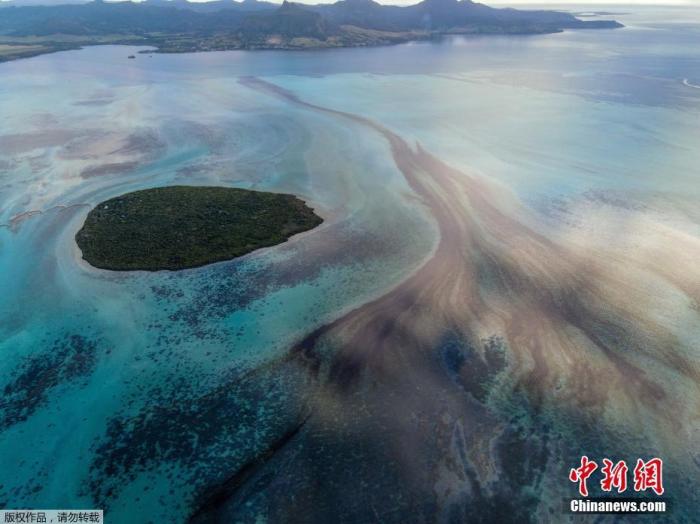China News Service, August 6 According to Japanese media reports, on the 6th, it has been one year since a Japanese freighter hit a rock near Mauritius.
The rich and diverse nature is gradually recovering, but the fishery control in the sea surrounding the site continues, and the dismantling of the hull is also slow.
Worries are also difficult to dissolve, and the scars of the accident are still deeply imprinted on this "paradise island."
Data map: In August 2020, a Japanese freighter ran aground off the coast of Mauritius, with heavy black oil floating on the surface.
According to reports, shortly after the freighter hit a rock in the southeast coast of the country, the Mauritian government banned fishing in the waters.
The thousands of tons of leaked fuel have been recovered, and the fishermen said that "the sea seems to have returned to calm."
However, because there may be suspected carcinogenic substances, fishing has not been allowed so far. "It is completely impossible to predict when work will restart. Every day is dark."
Part of the ship that hit the rocks remained at the scene.
The hull was broken in two, the first half was sunk into the sea, and the dismantling of the second half was slow.
According to the owner of the ship, Changpu Steamboat, the second half of the removal operation was interrupted due to delays in material handling and poor weather, and it is expected to restart in September.
Local time, August 8, 2020, Mauritius Island, aerial photography of Cape Esni, a wildlife sanctuary contaminated by oil.
On the surface, devastating damage to the ecosystem seems to have been avoided.
According to the environmental protection group "Mauritius Wildlife Fund", the rare crickets on the small islands near the scene disappeared for a while, but a small amount were confirmed again.
The reptiles evacuated to the zoo successfully lay their eggs in the breeding environment.
Birds also gradually returned to their original habitats from refuges to settle.
However, the fuel-covered mangroves have been deforested in large quantities, and the environment of the coastline has been greatly changed.
The head of animal protection of the foundation pointed out that "carcinogenic substances may accumulate in the bodies of birds, etc.", emphasizing that investigations of long-term effects are indispensable.
The Mauritian government has requested the Changpu steamboat to pay for the cleaning expenses on the grounds of causing serious damage to the natural environment.
A person in the insurance industry said that “in the future, there may be a lawsuit with the Mauritius government over the amount of compensation”, and believes that it will take time to resolve this matter.
On July 25, 2020, a large cargo vessel carrying 4000 tons of fuel oil of Japanese Merchant Marine Mitsui Company ran aground off the coast of Mauritius, and a fuel oil leak occurred on August 6.

